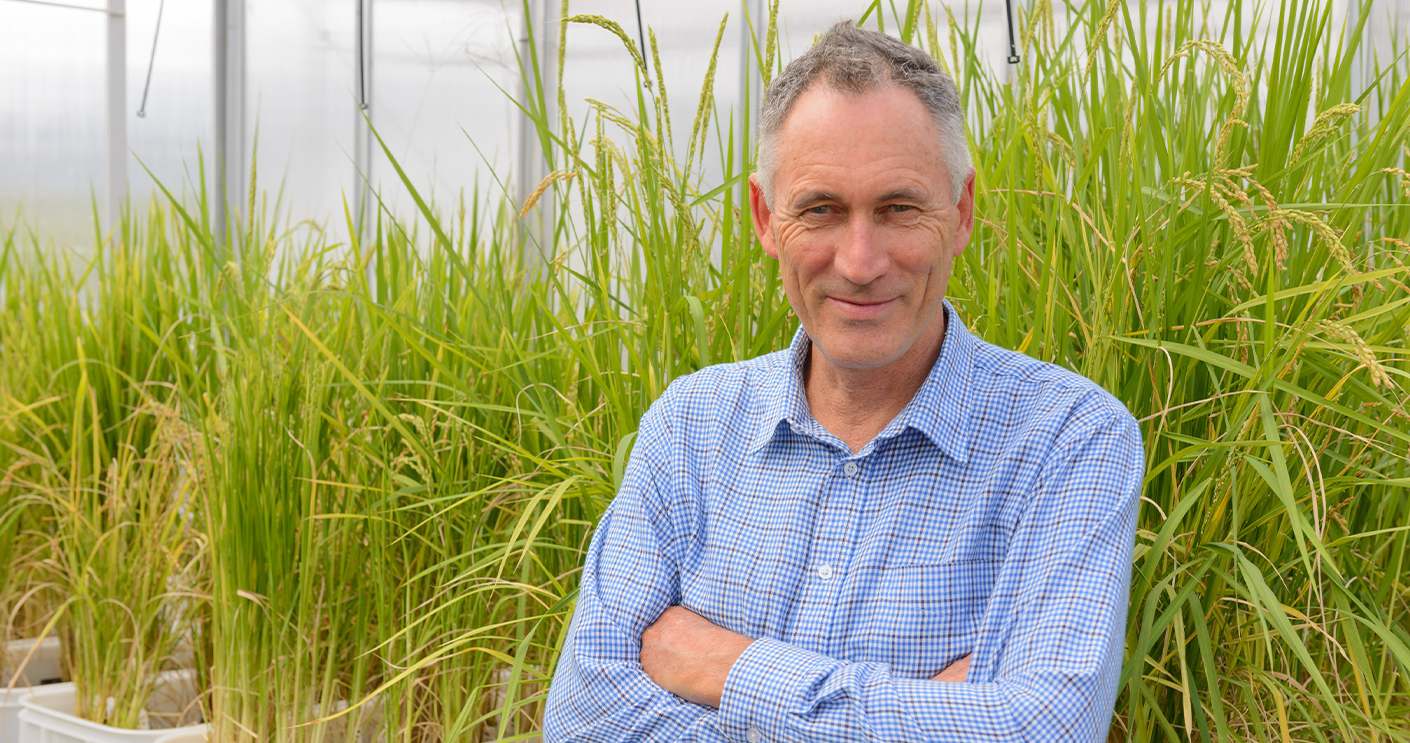Honorary Professor Brian Atwell, School of Natural Sciences
It can tolerate heat, drought, even salinity, with new research revealing genes that could improve stress tolerance in the two species of cultivated rices that nearly five billion people rely on for their staple diet.
The full genetic code of Australian native rice Oryza australiensis has been published in Scientific Reports by a team led by Macquarie University.
Oryza australiensis grows across the tropical monsoon areas of northern Australia. It is one of four native Australian rices.
“This rice can grow up to three metres tall during the monsoon season,” says Honorary Professor Brian Atwell from the School of Natural Sciences. “Then in the dry season, its roots can survive through extreme heat and drought,” says Atwell.
“We’ve been interested in the survivability tricks of this native rice for many years,” he says. “But it has been challenging to tease out its secrets. The genome is twice the size of domesticated rice and much of it is in repeat sequences, so-called junk DNA.”
“Piecing together the genome was somewhat like doing a jigsaw puzzle of a polar bear on the ice during a snowstorm,” he explains.
Rice evolved about 45 million years ago. Today, there are 25 species of rice but only two have been domesticated: O. sativa in China more than 6000 years ago; and O. glaberrima in West Africa about 3000 years ago.
Most rice production now depends on a few high-yield strains of O. sativa. Australian wild rices evolved millions of years ago and, because of their ability to survive extreme conditions, they represent vast reservoirs of untapped genetic variation that could be harnessed for domestic rice improvement.
It’s a timely discovery, Atwell says: rice growers around the world are facing a range of climate challenges. Growers in Bangladesh are being challenged by salinity, Vietnamese growers are coping with higher summer temperatures, and water availability is always an issue in Australia.
“Now we have a complete genome, researchers around the world can use the knowledge in several ways: to create a new domesticated Australian rice; to determine how far we can push conventional rice breeding; or to modify conventional rice by introducing Australian rice genes to give it greater stress tolerance.”
The research was funded by Macquarie University with support from the ARC Centre of Excellence in Plant Energy Biology and the ARC Centre of Excellence in Plant Success in Nature and Agriculture.


 Back to homepage
Back to homepage